Books
Reason, Faith, and the Struggle for Western Civilization—A Review
Gregg finishes the book by concluding that the success of Western civilisation rests on the “four theses” of creation, freedom, justice, and faith.
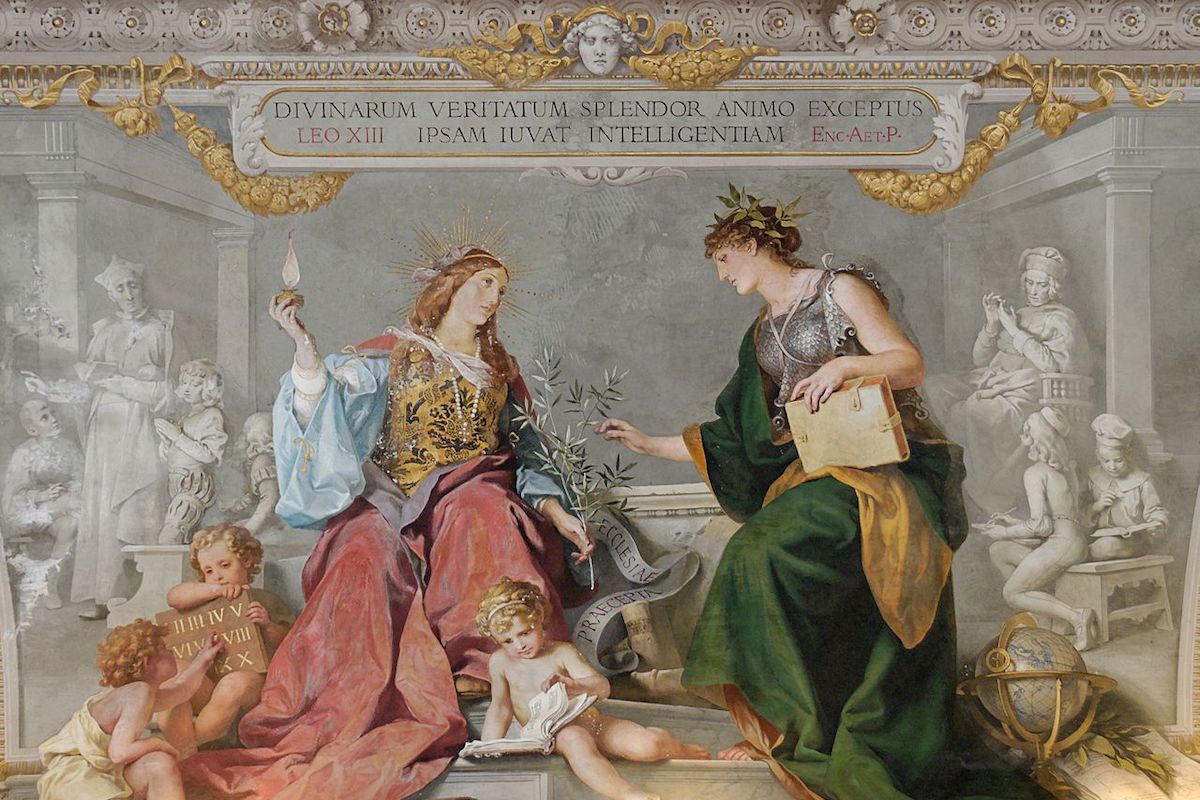
A review of Reason, Faith, and the Struggle for Western Civilization by Samuel Gregg, Gateway Editions (June 2019) 256 pages.
The role of Christianity in Western history presents an interesting puzzle. Those who argue that Christianity has nothing to do with the success of the modern West need to explain why the scientific method, constitutional government, market economics, and the modern concept of human rights arose in Christian Europe rather than somewhere else. On the other hand, those who argue that Christianity is critical or integral to the success of the modern West need to explain why these developments did not occur until 12 centuries after Christianity became the official religion of the Roman Empire. For most of its history, Christianity didn’t seem to be making much of a contribution to freedom, peace, and prosperity.
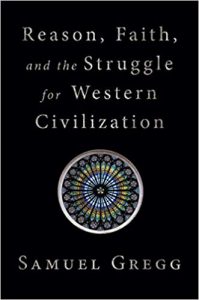
One interpretation which has gained currency is the “Athens and Jerusalem” argument, according to which, Western civilisation is based in a unique combination of Greek reason and Judeo-Christian faith. This argument was recently rehearsed, for example, by Ben Shapiro in The Right Side of History (reviewed for Quillette by Jared Marcel Pollen last year). In Reason, Faith, and the Struggle for Western Civilization, Samuel Gregg makes a similar but more specific case—Christianity is based in reason and threats to Western civilisation come from what he calls “pathologies of faith and reason.” In this short and engaging work, Gregg argues that Christianity spent its 12 notionally dark centuries perfecting this delicate balance.
In the first part of the book, Gregg looks at the development of faith and reason though Western history from ancient times. The two streams—Judeo-Christian religion and Greek philosophy—arose from different wellsprings and then converged in the Scholastic philosophy of the Medieval Catholic Church. Theologian Thomas Aquinas (1225 – 1274) studied the works of the Ancient Greeks and concluded that, notwithstanding their paganism, they had stumbled upon profound truths without the benefit of Holy Scripture. Clearly, God had not left his creations without any way of guiding themselves. Aquinas’s explanation was that there was a natural law, an inherent order to the universe created by God and comprehensible to man through his reason.
This natural law was complementary to the divine law revealed in the Bible, but could be discovered by anyone. It was a complete system which explained everything from the revolution of the sun and planets around the Earth to the sinful nature of homosexuality and usury. Aquinas was a great admirer of Aristotle, to whom he referred as The Philosopher, and so Western thinking on questions of science, politics, economics, and ethics closely followed Aristotle’s throughout the late Middle Ages. Gregg describes Aquinas as the “master integrator of faith and reason” and clearly has a close affinity with the traditional thinking of the Catholic Church—he quotes Pope Benedict XVI no fewer than seven times throughout the book.
Scholastic Philosophy was challenged and largely overturned by the European Enlightenment of the 17th and 18th centuries. Gregg has a more nuanced view of the Enlightenment than one might expect of someone writing from a traditional Catholic perspective, although he may understate the degree to which Enlightenment thinking was bitterly resisted by existing religious authorities. The Enlightenment was a varied and diverse movement, and its advocates followed a religious spectrum from the very conventional Anglicanism of John Locke to the fierce anti-clericalism of Voltaire. God had an important place in the thinking of many Enlightenment writers, from Isaac Newton’s watchmaker to the source of the rights guaranteed by the American Founding Fathers. And Gregg acknowledges the extent to which modern Christians have benefitted from the material progress and guarantees of freedom of speech and religion which came from Enlightenment thinking.
When we get the balance between reason and faith wrong, Gregg argues, we fall prey to “pathologies of reason” and “pathologies of faith.” The first pathology of reason is Prometheanism, or the belief that humans can be completely re-shaped by their environments. If people are blank slates and all knowledge comes from our senses, as the Enlightenment empiricists such as John Locke contended, then it would be possible to make a new and better humanity with a new and better environment. This was, Gregg writes, the thinking which led to the communist “new man” and the re-education camps.
The second pathology of reason is “Scientism,” or the belief that the scientific method is the only way to know anything. Science can provide answers, but cannot explain why those answers matter. It can explain why penicillin kills germs, but not why we should protect human life. He quotes Stephen Hawking and Leonard Mlodinow in The Grand Design (2010), who say science can now explain the big questions and “philosophy is dead.” Hawking later added that, while he could not prove that God doesn’t exist, God is unnecessary. Gregg argues that the Achilles’ Heel of scientism is a self-refuting premise: “No claims are true unless they can be proved scientifically” cannot itself be proved scientifically.
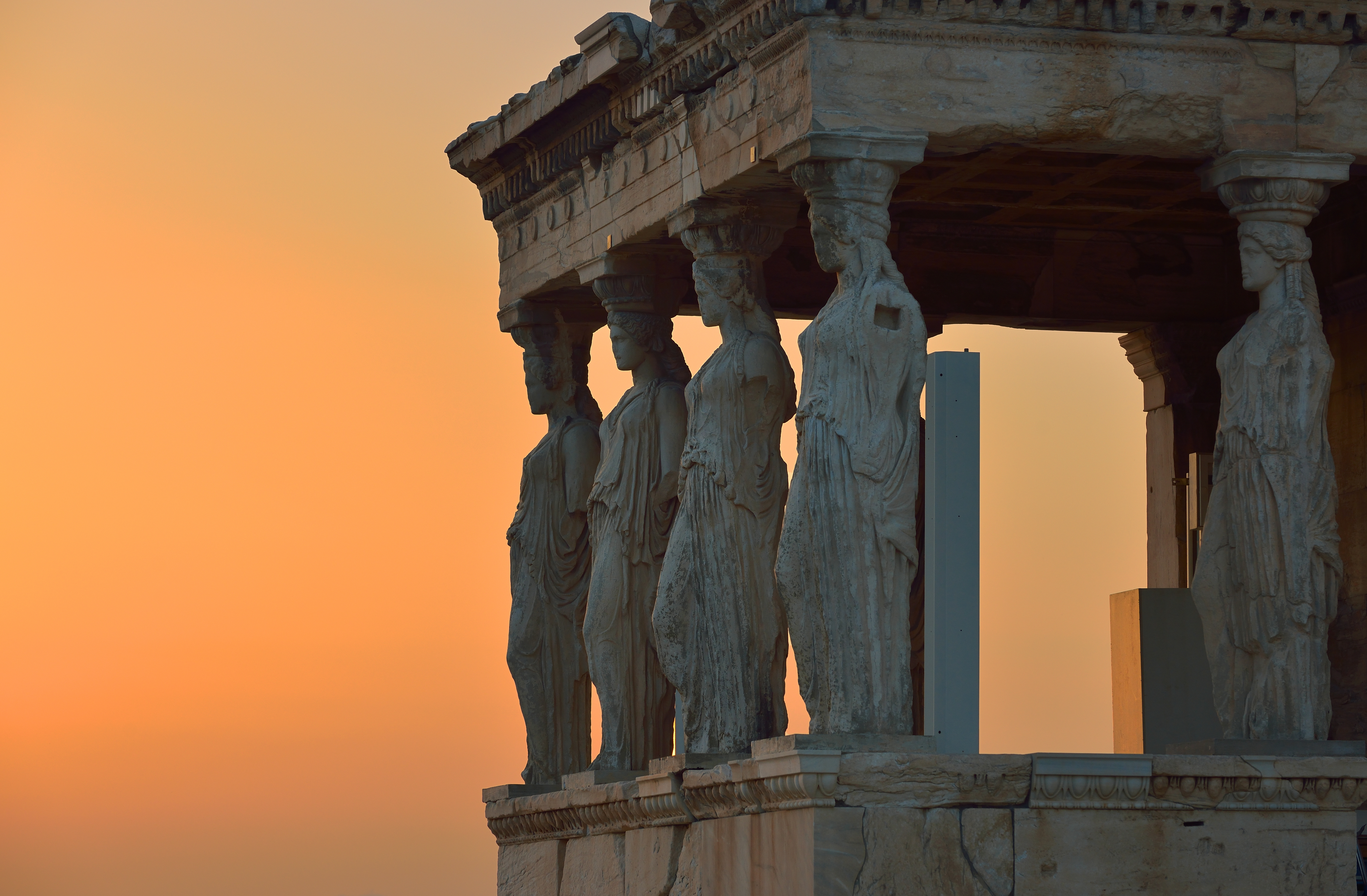
This argument strikes me as dubious. It’s obviously true that, the more we have naturalistic explanations for the world around us, the less we need religious ones. Once you know about electricity and the behaviour of heated gases, you don’t need Thor’s hammer to explain thunder. But this is dealing only with descriptive claims which can be tested and proven (and equally importantly, disproven). While there are those who are attempting to build systems of ethics based on science, such as Sam Harris in The Moral Landscape (2010), there are many others who seem quite happy to follow Stephen Jay Gould’s idea of non-overlapping magesteria. Gregg seems to be thinking in terms of complete systems of knowledge akin to Scholastic Philosophy. Science, or even “scientism,” doesn’t depend on being able to prove the claim that “no claims are true unless they can be proved scientifically.” It requires no absolute claims of truth and falsehood at all. An experiment showing that penicillin kills germs shows that, nothing more and nothing less. And even within the scientific framework, there are areas of knowledge such as mathematics which are non-empirical but still perfectly valid.
From the pathologies of reason, Gregg moves on to pathologies of faith—destructive ideologies produced when our religious impulses go astray. The “faiths of destruction” are represented by the ideologies of three men—Karl Marx (communism), John Stuart Mill (liberalism), and Friedrich Nietzsche (nihilism). The inclusion of Marx makes sense, as he has been highly influential and communism has been widely destructive. But even though Communist regimes openly used religious imagery, I’m not sure why communism appears as a pathology of faith when Gregg himself sees it as derived from pathologies of reason. I find the inclusion of the other two odd. Mill has been hugely influential, but it’s hard to argue that liberal ideas haven’t been a net positive for human happiness. And although Nietzsche’s ideas are certainly questionable, it’s hard to see how he had enough real-world impact to justify naming him alongside the prophets of communism and liberalism. Gregg tells us that Nietzsche was an influence on Nazism, but the impact wasn’t huge and it’s quite easy to imagine Nazism emerging much as it did had Nietzsche never existed. We can’t say the same about communism and Marx.
Next, Gregg discusses the dangers of religion divorced from reason. This is one of those points where it’s obvious you’re reading a book written by a Catholic and not a Protestant. While he skirts around the topic a little, it’s clear that Gregg has a certain scepticism of Christians whose faith is based in the subjective experience of a personal connection with Jesus rather than the exercise of reason guided by divine grace. Gregg makes one of his few references to the Protestant Reformation here by pointing out that the early Protestant reformers tended to be fiercely critical of Aristotle and Scholastic Philosophy. There is probably a lot more to be said on this subject. For example, early Calvinists were often fanatics who smashed stained glass windows and overturned altars in their quest to purge the Church of idolatry and paganism (Jerusalem over Athens, you could say). Yet two countries critical to the Enlightenment and the rise of the modern economy, Scotland and the Netherlands, were Calvinist. Then again, Gregg doesn’t dwell on this point, probably because he doesn’t consider conservative Protestants to be his political opponents.
The bulk of Gregg’s criticism of irrational religion, therefore, is directed at liberal Christianity and Islamic fundamentalism. The discussion of Islam is particularly interesting, although I am not familiar enough with Islamic theology to comment on its accuracy. As in medieval Europe, the philosophy of the Islamic world was based on a combination of Abrahamic teachings and Ancient Greek thought. Through the ninth and 10th centuries, the leading centre of study into Greek philosophy and science was Baghdad, and Aquinas himself accessed the works of Aristotle through the commentaries of the Islamic writer Averroes.
Obviously, though, the West subsequently overtook the Islamic world. Gregg’s explanation for this is the abandonment of a reasonable interpretation of faith and the rise of voluntarism in Sunni thinking. Voluntarism is the view that God is not bound by reason and His will is absolute. As Gregg explains it, God can therefore announce that two plus two is five and this would make it true: “The implication is that if God’s will conflicts with what reason suggests is right, God’s will must prevail—no matter how unreasonable the actions that might follow from this obedience.” Aquinas, on the other hand, argued that God’s omnipotence was not absolute—He could simply do all things which are possible. According to Gregg, the Mu’tazilites, a rational Islamic school with an interpretation of religion similar to Aquinas, were displaced between the ninth and 12th centuries by the fundamentalist and voluntarist Ash’arites. This, he writes, is why constitutional government has struggled to take root in the Islamic world. It’s a plausible theory, but one that demands deeper analysis—this is an instance in which the book’s brevity works against it.
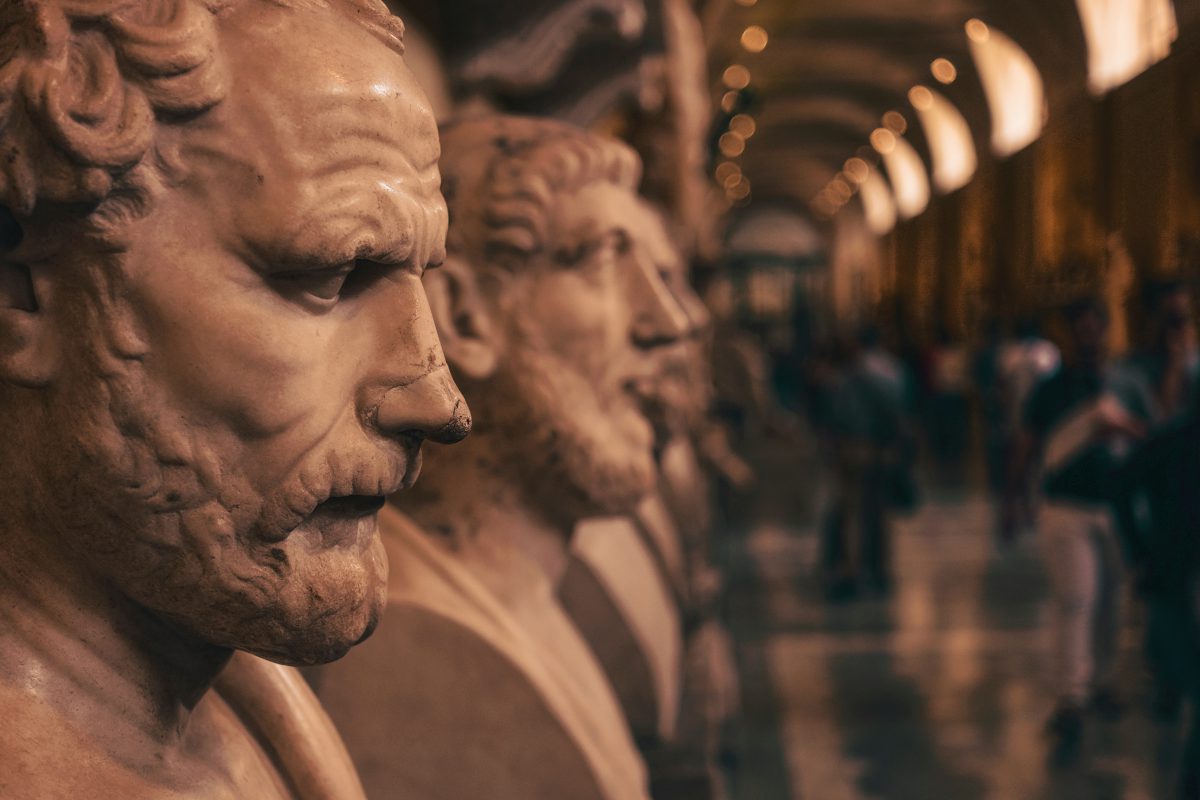
Gregg finishes the book by concluding that the success of Western civilisation rests on the “four theses” of creation, freedom, justice, and faith. He argues that even the non-religious can recognise the importance of Christianity and Judaism to the four theses, and “the free choice for Logos, and thus for reason and faith, is never beyond us.” The overarching argument the book offers is interesting and engaging, but there is a danger in trying to bundle Western civilisation and its enemies into neat boxes and tie them up with a bow. These are obviously hugely complex topics.
More specifically, Gregg declines to accept the magnitude in the shift in thinking between the 16th and 18th centuries. The Protestant Reformation, the Scientific Revolution, and the Enlightenment all took sledgehammers to Scholastic Philosophy. For example, Gregg cites both Aquinas and Locke as defenders of the balance between faith and reason. Both, he points out, were devout Christians who believed morality was based in natural law. But in Summa Theologica, Aquinas argued that the government should put heretics to death, as reason could point us to the correct religious belief and it was unreasonable to allow heretics to live and continue to corrupt the spiritual community. By contrast, in his Letter Concerning Toleration, Locke argued that the civil magistrate could not know which religious doctrines were true and which were false. And since the government couldn’t force people to change their beliefs anyway, it should tolerate religious difference and leave the rewarding of the pious and the punishing of the impious to God. This is by no means a small difference, and it goes directly to the fundamental understanding of reason (one of the key subjects of Gregg’s book) and the role of the government in a free society.
Gregg downplays these shifts and instead emphasises Western continuity (I suspect this is related to his Catholicism—I am certain a Protestant writer would have placed far more emphasis on the Protestant Reformation). For example, he argues that it is simply untrue that there was a hiatus of scientific discovery in the Middle Ages, citing the astronomical calculations of Roger Bacon, the physics and mathematics of Nicolas Oresme, and the science of Jewish scholars living in the West such as Levi ben Gershon and Jacob Bonfils. “The foundation of all these inquiries,” he writes, “was an understanding that the world is characterised by order, that the human mind can comprehend it, and that because the world is the work of God, it merits study.”
But this was a huge part of the problem. If the world follows a comprehensible order, and that order is established by God, then you don’t need to perform any experiments to figure it out. You can study the scriptures and infer answers to all questions using reason. The Ancient Greeks, Medieval Catholics, and Muslims, for example, all believed the planets orbited the Earth in perfect circles, because reason dictated that the heavens were the realm of the divine, and the realm of the divine must be perfectly regular (you can see this Medieval Catholic cosmology described vividly in Dante’s Paradiso). Anyone who actually observed the planets night after night could see this was not the case, but observation did not trump reason. Even those who speculated that the Earth revolved around the Sun, among whom Nicolaus Copernicus was the most famous but not the only example, still thought in terms of fixed spheres. Recognising that the planets revolve around the Sun in irregular and elliptical orbits took a willingness to discard pre-conceived ideas and take a far more radically empiricist approach than anyone had taken before. This was not possible while Scholastic Philosophy still dominated Europe’s universities.
The proof of this philosophical pudding was in the eating. There wasn’t a hiatus of science in the Middle Ages, but Medieval scientific progress was still minimal. The 20 years between 1608 and 1628 saw the invention of the telescope, the discovery of Jupiter’s moons, Kepler’s three laws of planetary motion, the first use of logarithms, Snell’s Law of refraction, and the discovery of blood circulation—a more significant two decades of scientific discovery than the entire Middle Ages from the Fall of Rome to the Fall of Constantinople.
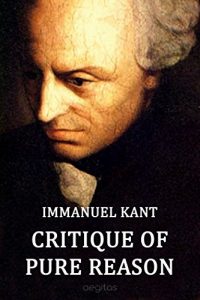
This touches on an interesting and salient problem with the entire “Athens and Jerusalem” argument. The Enlightenment was obviously about questioning religious dogma, but it was also about questioning human reason. Francis Bacon in Novum Organum (to whom Gregg refers) warned of how human reason is clouded by “idols of the mind”—what we today would call cognitive biases. Locke’s argument for toleration and free speech rests on the premise that our rulers simply aren’t smart enough to know what we should say or think. David Hume warned us that reason could only ever be the slave of the passions, and Immanuel Kant entitled his most famous work Critique of Pure Reason. Much of modern Western civilisation is grounded in a certain scepticism of reason. The scientific process has blind trials and peer review because we recognise that individual scientists are not perfectly reasonable. We restrain our governments through constitutions because we recognise our legislators are not perfectly reasonable. Capitalism works on the assumption that there are no universally rational choices and each individual should be left to maximise his or her utility. We call the Enlightenment “the Age of Reason,” but it was actually an age in which reason’s utility and authority were interrogated and reappraised. It was not so much a triumph of Athens over Jerusalem as a curtailment of both.
Gregg also undermines the credibility of his arguments by tying himself up in Christian apologetics. The question of the truth or falsehood of the Christian religion is actually irrelevant to the question of its historical or social impact. Christianity could have nothing to do with the success of the modern West and still be absolutely true. Conversely, Christianity could be a total fiction and still absolutely critical to the way Western civilisation developed. Nevertheless, Gregg maintains that reason must have a basis, and pure materialism cannot provide an explanation as to why humans have value. A materialist, according to Gregg, cannot actually say that there’s a reason to condemn Auschwitz any more than he or she can say there’s a reason to prefer the Parthenon to a pile of rocks. In support of this claim, he quotes Anglican theologian Ian Markham: “You cannot assume a rationality and argue that there is no foundation for that rationality. Either God and rationality go or God and rationality stay. Either Nietzsche or Aquinas, that is our choice.”
The obvious problem with this argument is that it doesn’t match reality. Millions of people live quite happily rejecting both Aquinas and Nietzsche. Secularism has not brought violence and chaos. You are far less likely to face a violent death in modern secular Europe than deeply religious 17th century Europe. Europe’s wars of religion killed a higher proportion of the continent’s population than the Second World War and the Holocaust. You are also far more likely to face a violent death in El Salvador and Syria, where a majority of the population believe the world was created by a loving God who endowed men with reason, than in Switzerland or Sweden, where a majority do not. This is not to play a game of one-upmanship or insist that secular ethics are better than Christianity. Atheist regimes, like religious ones, have their own mountains of skulls. But a historian does need to explain the world as it is, and Gregg would have been better off making the narrower argument that Judeo-Christianity had a decisive influence on modern secular ethics.
Readers are likely to find insights in Gregg’s book which will pique their curiosity and send them scurrying for more information. But his argument isn’t entirely consistent with what we know about the world and is coloured by his partiality to Catholic theology. And by the end, no explanation is provided for the brutality and closed-mindedness of the Church for the majority of its history, or the lack of material, scientific, or political progress for the long centuries of the Middle Ages. At one point, Gregg describes Western civilisation as a tapestry, which is a good analogy. But this tapestry appears to be too elaborate for neat explanations.
Adam Wakeling is an Australian lawyer and writer whose work has explored Australian political, social, and military history. His most recent book, Stern Justice: The Forgotten Story of Australia, Japan and the Pacific War Crimes Trials, was published by Penguin in 2018. You can follow him on Twitter @AdamMWakeling.
Featured Image: “Faith and Reason United” (1887) by Ludwig Seitz (wikicommons).






